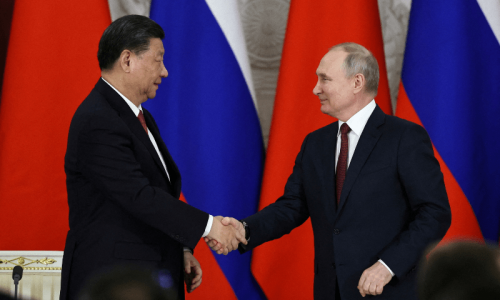ALGIERS: Youths involved in Algeria’s worst rioting in decades were protesting not just against rising prices, but against a system that has left them no other way to voice their frustration, experts said. The riots, which have left at least five people dead and more than 800 injured, most of them police, erupted following a dramatic rise in prices for basic goods, including food. In some cases, prices had risen by as much as 30 per cent since January 1.
The government has scrambled to deal with the crisis, announcing plans for cuts on import duties and taxes on sugar and food oils.
But experts said the underlying cause of the violence — a political regime that has clamped down on dissent — will remain.
“The political and media lockdown that mark the Algerian regime, its economic choices and the quality of governance were the deep-rooted causes (of the unrest),” said Algerian sociologist Nacer Djabi.
Newspaper Le Quotidien d’Oran said the rise of the protests — from small local demonstrations to nationwide riots — left little hope “of a return to normal.” “The riots that Algeria has lived though have created an irrevocable split between the people and the government,” it wrote in its Sunday edition.
Some have blamed the rioters themselves and a youth culture that emerged among those born in the 1990s, when bloody clashes between security forces and Islamists left tens of thousands of people dead.
“There is a higher level of violence (in youth) who come from this period of the 1990s,” Interior Minister Dahou Ould Kablia told AFP.
“These youth are extremely nihilistic,” he said, accusing them of being materialistic and indolent.
Others, however, said it was not surprising that youth would take to the streets when there were no other means of expression open to them.
Algeria’s government has maintained a state of emergency dating from the 1990s civil war with Islamist extremists that continues to forbid all demonstrations and muzzle the opposition and non-governmental organisations.
“(It is) a political system that has closed all space for expression,” said Mustapha Bouchachi, the chairman of the Algerian League for the Defence of Human Rights (LADDH).
The policy, followed “for years without respite,” has “created a great void between the government and Algerians, leaving them without a voice, without any spokesmen, and without real avenues of expression,” said Ali Bahmane, a commentator with newspaper El Watan.
Algerian authorities on Sunday vowed to punish those responsible for the riots. Officials said about 1,000 protesters had been arrested, many of them minors, during the disturbances.
But the head of the opposition Rally for Culture and Democracy party, Said Sadi, said authorities should not be surprised that frustrated Algerians were taking to the streets.
“You cannot close off all spaces of expression to the opposition and then be sorry when the streets emerge as the place where social problems are revealed,” he said.—AFP











































Dear visitor, the comments section is undergoing an overhaul and will return soon.